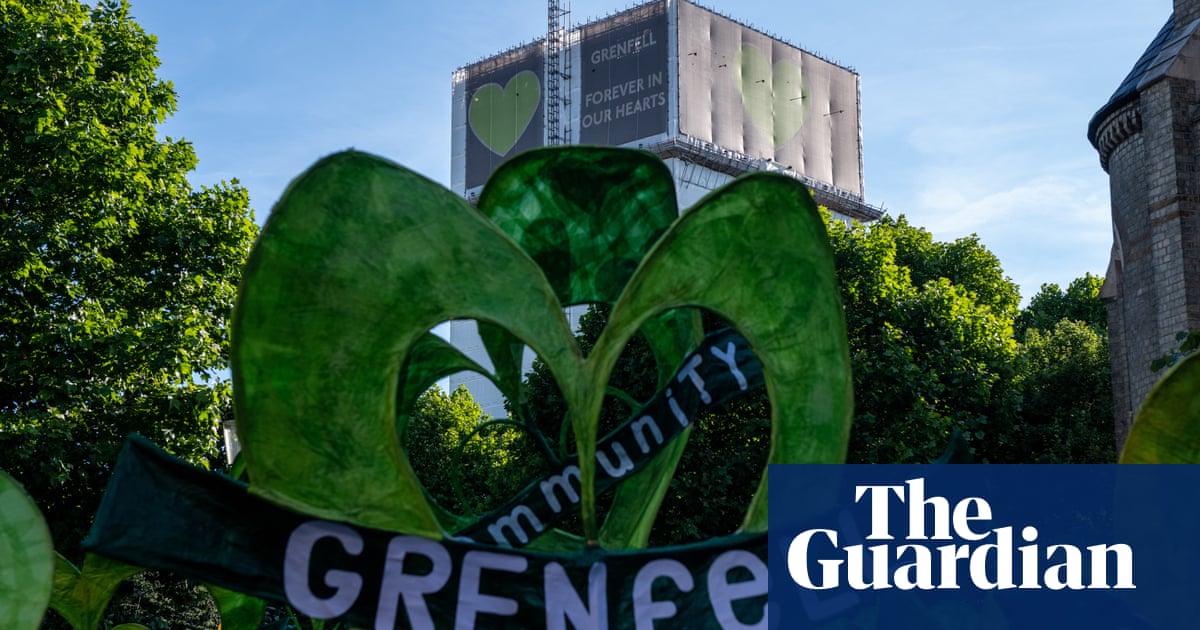
The building inspector who missed key defects in the disastrous refurbishment of Grenfell Tower has told the public inquiry into the fire he was “truly heartbroken” for the victims during a tearful speech in which he also pointed the finger at his former employer, the Royal Borough of Kensington and Chelsea.
John Hoban, a senior building control surveyor at the council which owned the high-rise in west London, sobbed as he described his pain at the deaths of 72 people after the 2017 fire that was fuelled by the cladding system it was his job to inspect.
But he expressed anger at his former employer, condemning the deep austerity cuts that he said led to 10 building inspectors with 230 years of experience between them being replaced with a single new graduate at about the time the refurbishment was taking place. “I don’t believe that was the correct way to run a department,” he said.
After two days of evidence in which Hoban admitted not checking drawings properly, failing to read the specification and not understanding the combustibility of proposed materials, he said he was heartbroken “for those that lost their lives that night, particularly the children, the brothers and sisters, sons and daughters, fathers, mothers, grandfathers, grandmothers”.
He also addressed the survivors and the bereaved, some watching the socially distanced proceedings online, saying he knew their lives would never be the same.
Hoban earlier described being overwhelmed by a workload of up to 130 projects at a time and told the inquiry that the culture of the department at the Conservative-controlled council was such that he did not feel he could say no to work.
He said he would come into the office on weekends to “keep on top of my work”, adding: “I used to go to bed with a notebook thinking about jobs, and some nights I wasn’t sleeping at all.”
Hoban said the cuts to staff between 2013 and 2017, which the inquiry heard were signed off by council leaders, were not the correct way to run a department. His remarks represent a push back against the council’s statement to the inquiry in January in which it apologised unreservedly for failings in its building control service. That was taken by some survivors and bereaved as an attempt to limit the blame assigned to the council.
During his evidence, Hoban pointed to the expertise of the design team and fire engineers who were employed as reasons he felt comfortable with what they were doing. Richard Millett QC, counsel to the inquiry, repeatedly reminded Hoban it was his responsibility as a building inspector to check their work. He asked Hoban: “Are you saying because Grenfell had a team of experienced professionals, you were less ruthless and rigorous than you would have been had they not been there?” Hoban denied he was “relying” on them, but said: “I can only do so much in a day, Mr Millett, and I have to prioritise my work, I have to make judgments.”
In his final tearful remarks, Hoban tried to set the failures that led to Grenfell in the context of wider deregulation of building standards.
He said: “If we had a regulatory body like we had with the Greater London council and the regulations and building act and bylaws we had at the time, and a support network of experts that administered the regulations, I don’t think we would be … here talking about people that lost their lives and all these buildings with flammable cladding and the stress and uncertainty that leaves with people living in those buildings now.”
The inquiry continues on Monday.












